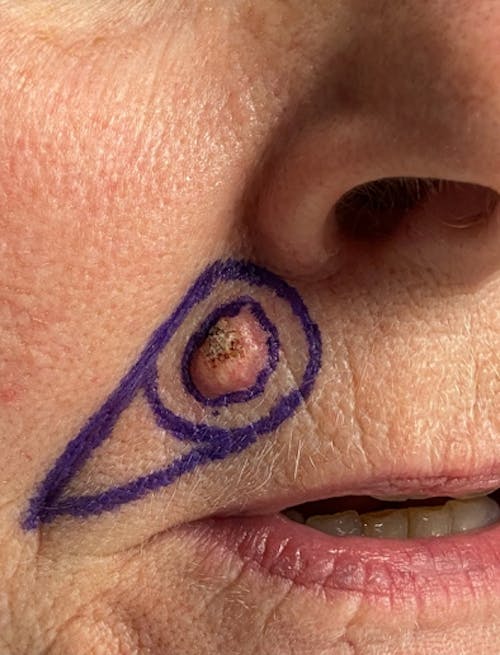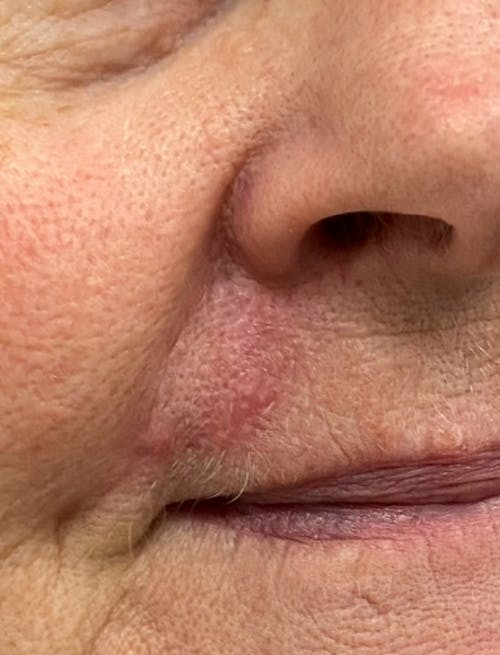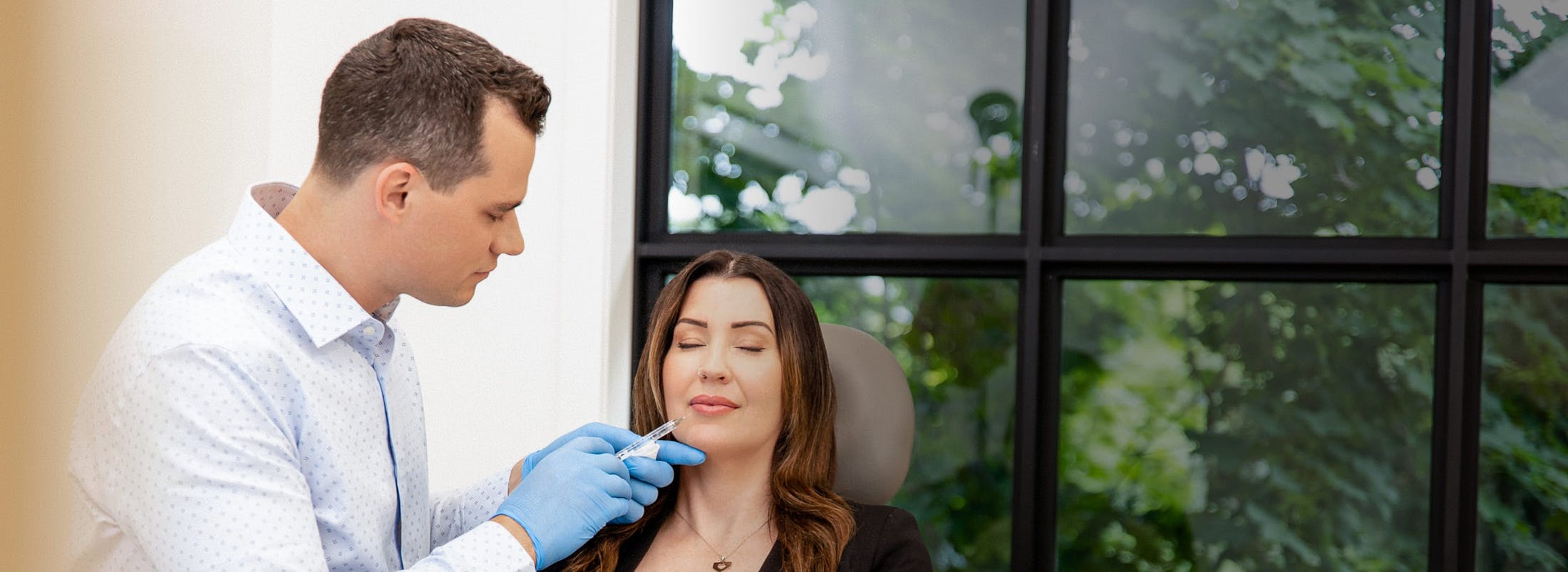Skin cancer is among the most common cancers appearing on the face. At Guelph Facial Plastics, Dr. Matthew D. Brace delivers comprehensive care for skin cancer patients, offering specialized treatments and scar revision techniques for optimal outcomes.
Surgery for facial skin cancers
When skin cancer is detected on the face, surgical removal with an immediate examination of each layer under a microscope increases the chance of cure without the need for revision surgery. This process ensures that the cancer is entirely removed while sparing the maximum amount of healthy tissue, which is critical in preserving facial appearance and function. Dr. Brace offers frozen section margin analysis through his partnership with the pathology department at Guelph General Hospital to facilitate expedited care and immediate results to ensure complete excision of the facial tumour.







